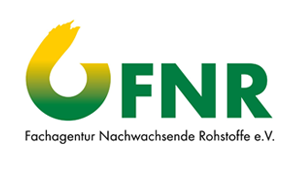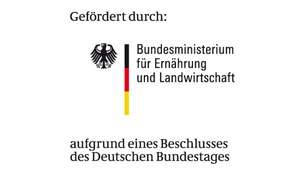Project
Biobased binders for lithium-ion batteries (BeBAT)

Biobased binders for lithium-ion batteries (BeBAT)
Because of high energy density, light weight and a high cycle stability, lithium-ion batteries are becoming increasingly important in the field of electric mobility and in the stationary storage of electrical energy. In order to improve their manufacturing process and reduce environmental impact of these batteries, we develop epoxy-based binder from renewable resources as a component for the coating of the electrodes.
Background and Objective
The currently used binder for copper foils is based on the highly resilient polymer polyvinylidene fluoride which is quite expensive, can only be dissolved in a few solvents and shows some mechanical issues in battery applications. Another issue is the widely used toxic solvent N-methyl-2-pyrrolidone, which has been classified to be of very high concern by the European Chemicals Agency. Therefore producers have to comply with very strict regulatory requirements during electrode manufacturing for reasons of work safety and environmental protection.
Our project proposal aims to develop an alternative, bio-based binder for lithium-ion batteries. For this we synthesize bio-based epoxy resins that require no or a less harmful solvent to simultaneously increase the functionality, safety and environmental performance of lithium-ion batteries. The starting materials for the bio-based binder must be chosen carefully. One challenge is that raw materials must be selected and to modify that the subsequent production steps and the battery performance are not affected.
Approach
The starting compounds are unsaturated biobased compounds e.g. Fats and oils, used and modified for use as epoxy binder for electrode material. Optimization of the responsiveness, the setting behavior and the chemical, mechanical and electrical stability shell be done. Based on the results we process selected binder systems in pre industrial scale to electrode sheets and test them for their suitability.
Results
Funding Body
-
Fachagentur Nachwachsende Rohstoffe e.V. (FNR)
(national, öffentlich)
Duration
9.2015 - 10.2018
More Information
Project funding number: 22006415
Funding program: FNR
Project status:
finished
Publications on the project
- 0
Jeske H, Kandula M, Stammen E, Storz H, Wolter C (2019) Schlussbericht zum Verbundvorhaben "Entwicklung von epoxid-basierten Bindern auf Basis nachwachsender Rohstoffe für den Einsatz in Lithium-Ionen-Batterien (BeBAT)" : Laufzeit: 01.11.2015 bis 31.10.2018. Braunschweig: Johann Heinrich von Thünen-Institut, 42 p
- 1
Kandula M, Jeske H, Stammen E, Storz H, Dilger K (2018) Bio-Based epoxy adhesives as alternative for lithium ion battery binders. In: in-adhesives : Symposium on innovations in adhesives and their applications. Kirchseeon: MKVS, pp 93-102

![[Translate to English:] [Translate to English:]](/media/_processed_/3/6/csm_Hintergrund-Ausschnitt1_9daaef6b89.jpeg)
![[Translate to English:] [Translate to English:]](/media/_processed_/3/6/csm_Hintergrund-Ausschnitt1_0bd7111163.jpeg)







